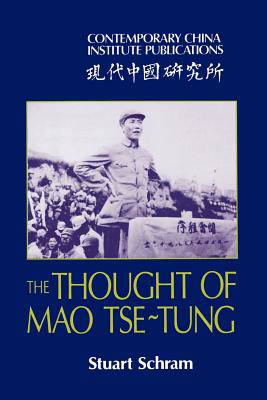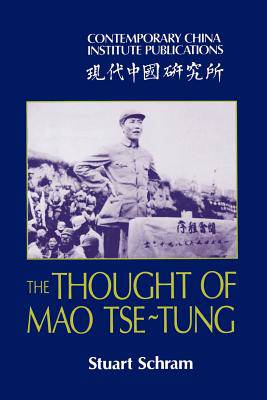
- Afhalen na 1 uur in een winkel met voorraad
- In januari gratis thuislevering in België
- Ruim aanbod met 7 miljoen producten
- Afhalen na 1 uur in een winkel met voorraad
- In januari gratis thuislevering in België
- Ruim aanbod met 7 miljoen producten
Omschrijving
The author traces the stages in the formation of Mao's thought from the May Fourth period through the peasant movement, the long years of armed struggle against the Kuomintang and the Japanese invaders, the foundation of a new state, his efforts to devise a 'Chinese road to socialism', the Sino-Soviet split, and the so-called 'Great Proletarian Cultural Revolution'. Professor Schram offers in this book a fascinating and sure-footed analysis of Mao's intellectual itinerary, recognizing the positive value of the participatory and anti-bureaucratic thrust of his thought, and of his efforts to link Marxism with Chinese reality, but underscoring also the irrationality of Mao's Great Leap strategy, and the destructive consequences of the personality cult, which led in the end to a combination of anarchy and despotism.
Specificaties
Betrokkenen
- Auteur(s):
- Uitgeverij:
Inhoud
- Aantal bladzijden:
- 256
- Taal:
- Engels
- Reeks:
Eigenschappen
- Productcode (EAN):
- 9780521310628
- Verschijningsdatum:
- 13/07/1989
- Uitvoering:
- Paperback
- Formaat:
- Trade paperback (VS)
- Afmetingen:
- 152 mm x 227 mm
- Gewicht:
- 385 g

Alleen bij Standaard Boekhandel
Beoordelingen
We publiceren alleen reviews die voldoen aan de voorwaarden voor reviews. Bekijk onze voorwaarden voor reviews.









